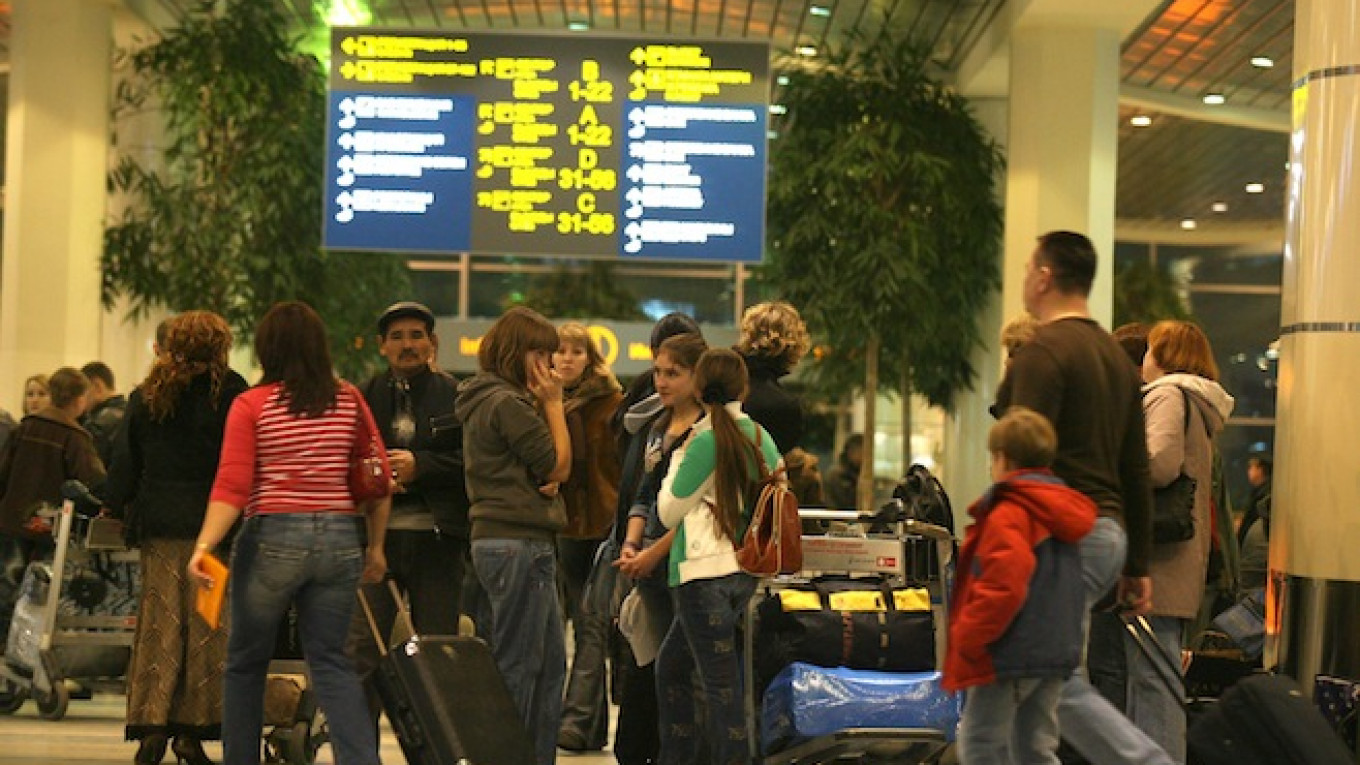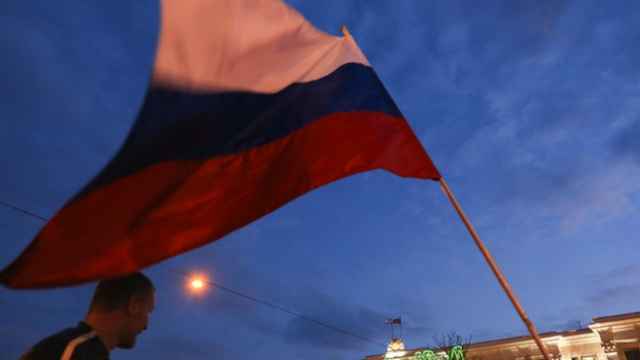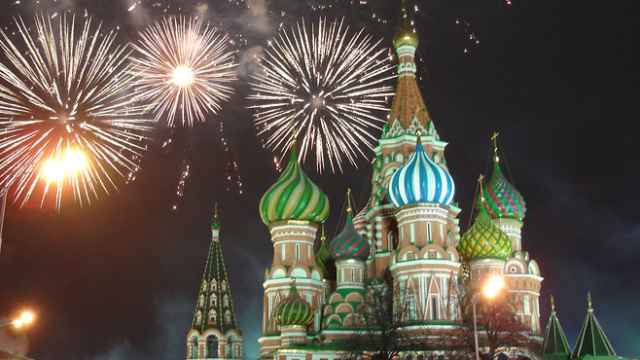Eighty-five percent of Russians have little or no interest in moving to a different country, although the number of those driven to relocate because of political dissent has increased for the first time in years, a survey by state-run polling agency VTsIOM indicated.
The percentage of people wishing to leave Russia is highest among supporters of opposition political parties — 39 percent of this group expressed an interest in emigrating.
Interest in moving abroad is also high among young adults. Twenty-six percent of respondents aged 18-24 said they want to leave Russia — twice the national average of 13 percent, according to the poll.
Economic considerations such as higher wages and pensions remain the main driving force among those who wish to relocate, although the popularity of that motive declined to 40 percent this year, compared to 47 percent in 2014 and 51 percent in 2013.
A tiny minority of people who cited their political dissent as a motive has emerged this year for the first time since 2011, according to the VTsIOM report. No data prior to 2011 was available.
Displeasure with the government and its policies was listed as a motive by 6 percent of those who acknowledged their wish to leave the country, followed by concerns about human rights or the legal system, with 3 percent, the poll indicated.
The survey allowed respondents interested in emigrating to give any number of reasons for their wish to move to a different country.
VTsIOM chief Valery Fyodorov said in a statement Monday his agency's results indicate that the “flow of emigration from Russia, despite the obvious economic difficulties and other circumstances, has not increased.”
“The survey shows that those high-profile cases of emigration, which are discussed in the media and on social networks, are not the rule but exceptions,” Fyodorov said.
A number of prominent Russians — such as Pavel Durov, the whiz-kid founder of the country's VKontakte social network — have left the country recently amid government policies tightening control over the Internet and cracking down on non-governmental organizations, as well as its increasingly anti-Western rhetoric.
VTsIOM's director for international research, Olga Kamenchuk, said the results indicated Russians' unwavering support for President Vladimir Putin and a willingness to weather economic troubles amid Western sanctions imposed against Moscow for its annexation of Crimea and its role in the Ukraine crisis, Russian daily Kommersant reported.
“The president's approval rating remains very high, the majority of people support the current political course,” she was quoted as saying. “They may be upset by the change in store prices, but they support what is going on, at least for now, and have no intention of going anywhere.”
Putin's approval ratings reached an all-time high of 89 percent, according to a survey by the Levada Center released earlier this summer.
The VTsIOM poll was conducted on July 4-5 among 1,600 people in 46 of Russia's regions, and gave a margin of error of no more than 3.5 percentage points.
A Message from The Moscow Times:
Dear readers,
We are facing unprecedented challenges. Russia's Prosecutor General's Office has designated The Moscow Times as an "undesirable" organization, criminalizing our work and putting our staff at risk of prosecution. This follows our earlier unjust labeling as a "foreign agent."
These actions are direct attempts to silence independent journalism in Russia. The authorities claim our work "discredits the decisions of the Russian leadership." We see things differently: we strive to provide accurate, unbiased reporting on Russia.
We, the journalists of The Moscow Times, refuse to be silenced. But to continue our work, we need your help.
Your support, no matter how small, makes a world of difference. If you can, please support us monthly starting from just $2. It's quick to set up, and every contribution makes a significant impact.
By supporting The Moscow Times, you're defending open, independent journalism in the face of repression. Thank you for standing with us.
Remind me later.






